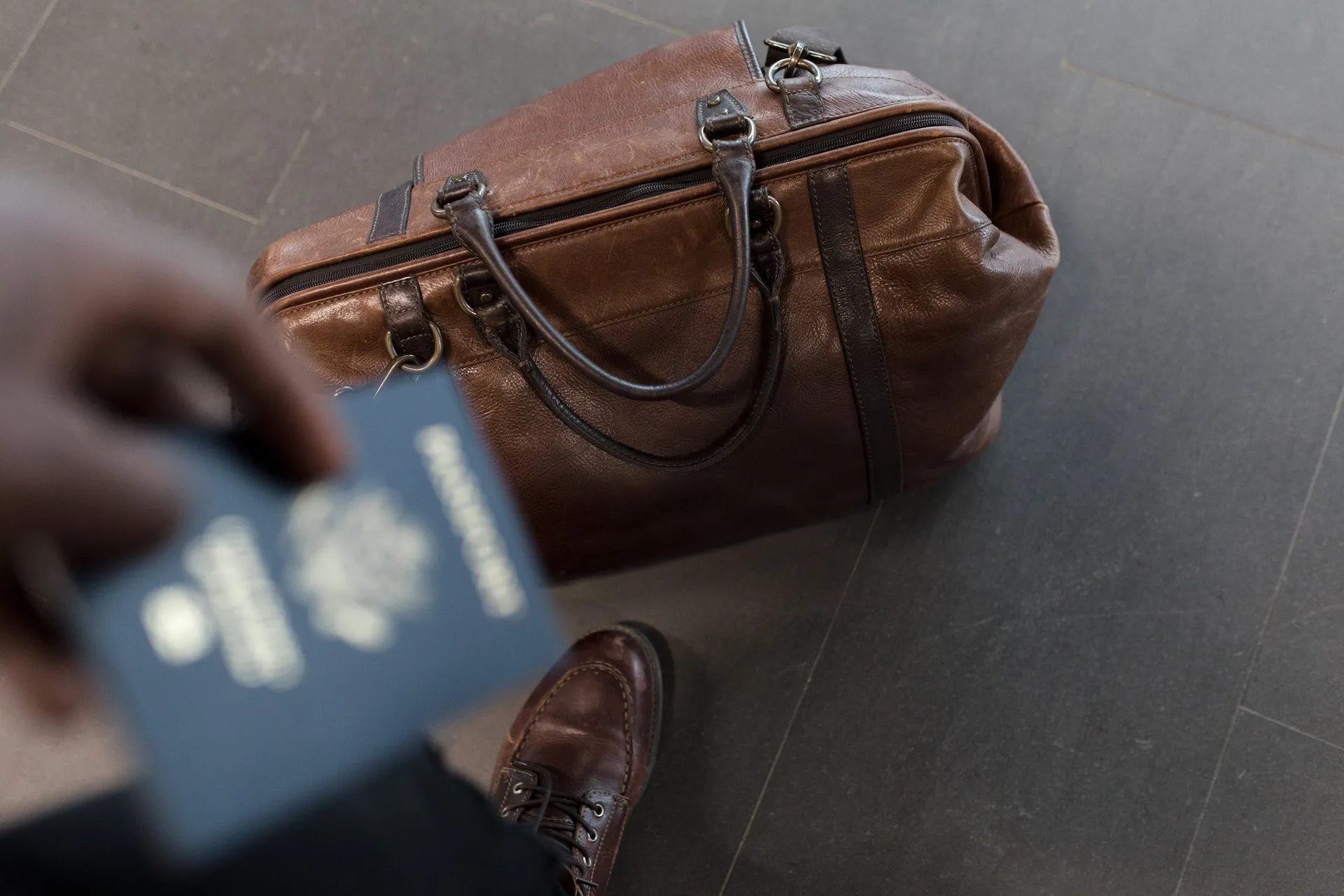Ireland Retirement Visa
The Irish Retirement Visa allows foreign citizens to come to Ireland to retire. Find out more about the requirements and the application process.
To receive assistance with your Retirement Visa application, call us today +44 (0)333 414 9244.
Read our 1001 reviews
Request a call back from our immigration experts
Benefits of Choosing IAS‘ Ireland Immigration Lawyers
When it comes to obtaining an Ireland visa or permit, IAS Ireland immigration lawyers are well-equipped to help you.
With IAS’ track record of successfully helping clients visit or immigrate to Ireland successfully, we can help you achieve your goal.
Our dedicated immigration lawyers provide our services through a comprehensive and personalised approach. With IAS, you enjoy:

Compassionate support from an experienced immigration lawyer dedicated to your success



Support in gathering supporting documents and completing a high-quality application.



Confidence that your case is being handled by an experienced team.



In-house document checks done by lawyers who are well-versed in Ireland immigration matters.
Services we Provide
Retiring to Ireland from UK
As Ireland is a very safe country with rich culture, it is a popular destination for those who wish to retire abroad. Retiring to Ireland from the UK is relatively straightforward, especially since both countries maintain a close relationship under the Common Travel Area (CTA) agreement. This arrangement allows British citizens to live, work, study, and retire in Ireland without the need for a visa or residency permit.
However, for non-UK citizens, the process is more complex and involves applying for a specific Irish retirement visa or permission to reside.
If you are from an EU/EEA country, you can come visit Ireland for up to 90 days without having to apply for a visa. Retiring in Ireland, however, requires you staying in the country for more than three months and for that you need a visa.
The Irish Retirement Visa is one of Long Stay ‘D’ Visas, which means that if your application is successful, you will be able to stay in Ireland for more than 90 days. To be able to receive the Retirement Visa, you have to meet a number of eligibility requirements.
Once you receive the Retirement Visa, you have to renew it every year during the first five years you spend in Ireland. After that, you will be able to apply for a five year visa.
Who can apply for the Irish Retirement Visa?
Both EEA and non-EEA citizens can apply for the Irish Retirement Visa.
If you are an EEA/Swiss national, you can enter Ireland without a visa and stay there free from restrictions for three months. If after this time you want to stay in the country for longer, you have to apply for a Retirement Visa.
As a non-EEA national, you have to first apply for a visa to be able to travel to Ireland. Then, you need to apply for permission to remain in Ireland for longer than three months.
Regardless of your nationality, to be able to apply for the Irish Retirement Visa, you have to have enough funds and sickness insurance to ensure that you will not be a burden on the state.
If you are not sure whether you need a visa to enter Ireland, talk to our immigration lawyers. They will explain to you in detail what the first step of applying for the Irish Retirement Visa should be based on your individual circumstances.


Requirements for the Ireland Retirement Visa?
The main requirement for the Irish Retirement Visa is that you have to be able to support yourself financially after moving to Ireland. You have to provide evidence showing that you earn at least €50,000 per year.
In addition to that, you have to demonstrate that you have savings that you can use in case of an emergency. These savings should be equivalent to, for example, the price of a residential property in Ireland.
Some other requirements for the Retirement Visa include:
- You have private health insurance that covers the cost of potential medical treatment in Ireland
- You agree to abide by the laws of Ireland
- You intend to live in Ireland long-term
- You have not previously committed any serious crimes or breached conditions of your visa to Ireland
- You have a valid passport.
Keep in mind that if you come to Ireland on the Retirement Visa, you will not be able to receive any state benefits. You will also not be able to work until you apply for employment permission.
Application Process for Ireland Retirement Visa
Both EEA and non-EEA citizens must apply for permission to retire in Ireland by sending a completed TPER application form to the Department of Justice. This will be granted as a Conditional Letter of Offer. EEA citizens can then move to Ireland for up to three months. All non-EEA citizens and EEA citizens wishing to remain longer will need to apply for an Irish Retirement visa.
The required visa is called a D-Reside visa. Before you can begin the application process, you will need to gather the required documents. These are usually as follows:
- A copy of your passport and birth certificate.
- Evidence that you meet the financial requirements, such as bank statements.
- Proof of private medical insurance.
- Details of any family members who live in Ireland or any Irish Associations.
- A Police certificate clearance.
Please note that this is a standardised list, and the Irish authorities have the right to request additional documentation. You should also use your application to explain your reasons for wanting to retire in Ireland.
You will then need to complete the visa application form, ensuring that all information contained matches what was given in your documents and during your initial application. Finally, you can apply and submit supporting documents at the nearest Irish embassy, consulate, or visa application centre. Here, you will pay the visa application fee.
You may also be asked to provide biometric data, such as fingerprints and facial scans, depending on your nationality. An interview may also be required, especially if there are discrepancies or errors within your application that need to be addressed.
What documents to include in Irish Retirement visa application?
To prove your eligibility for the Irish Retirement Visa, you need to include a number of documents in your application. These include:
- Clear copy of your passport
- Copy of your birth certificate
- Reason why you are applying for immigration permission in Ireland
- Details of any family members who live in Ireland
- Details of any Irish Associations
- Evidence showing that you meet the financial requirements of the visa
- Proof of having private medical insurance
- Police Certificate Clearance
- Health Declaration.
Depending on your individual situation, you might have to provide other documents. If you hire one of our immigration experts they will help you prepare a complete portfolio of evidence.


Processing Times for Ireland Retirement Visa Application
Once your visa application has been submitted, you will need to wait for the outcome. The standard processing time is 30 working days (not including weekends and public holidays). This is the same processing time as for a Visit, Family, Employment, Study, or Transit visa. Please note that the processing time may be longer if the Irish authorities are experiencing a backlog or if there are issues with your application. Therefore, it is in your interest to make sure your application has the best chance of being successful quickly.
You will have to go through a further wait if you believe your visa was unfairly refused. You may launch an appeal, but the standard processing time will be up to three months.
Renewing your Permission in Ireland
Once you have your retirement visa, you are free to start your new life in the country. However, the visa has just one year of eligibility and will have to be renewed once 12 months have passed. Failure to successfully renew your Retirement visa before it expires will mean you are staying in the country illegally, and you may face serious consequences from Ireland’s immigration authorities.
You must renew your retirement visa annually until you have spent five years in Ireland. Only then will you be eligible to apply for a five-year visa.
How can IAS help?
Looking for an immigration lawyer? Our team of expert immigration specialists are experts when it comes to Irish immigration law. They have helped many clients successfully apply for various visas to Ireland, including the Retirement Visa.
If you hire one of our experts, they can help you file and submit your visa application. Thanks to their help you can be sure that your application has been completed to the highest standard. Your consultant will also write a Letter of Representation for you, which can further strengthen your case.
Our team can also explain to you what the conditions of the Irish Retirement Visa exactly are to make sure you do not violate them by accident. If you have any questions about retiring in Ireland, our lawyers will give you the answers.
To find out more about how our experts can help, call us today on +44 (0)333 414 9244.
Table of Contents
Table of Contents will appear here.Legal Disclaimer
The information provided is for general informational purposes only and does not constitute legal advice. While we make every effort to ensure accuracy, the law may change, and the information may not reflect the most current legal developments. No warranty is given regarding the accuracy or completeness of the information, and we do not accept liability in such cases. We recommend consulting with a qualified lawyer at Immigration Advice Service before making any decisions based on the content provided.
Frequently Asked Questions
One of the eligibility requirements for the Irish Retirement Visa is having private medical insurance. Even if your application for the Retirement Visa is successful, you will not automatically receive the right to access public health services in Ireland.
You will be able to receive free public healthcare in Ireland after you become resident there. You can apply to become a resident in Ireland after living there for a certain qualifying period of time.
Generally speaking, if you hold the Retirement Visa to Ireland you have the right to drive in Ireland provided that you have a valid driving licence, recognised in Ireland.
If you are a citizen of a country that belongs to the EU, your licence is recognised for use in Ireland. That means that you are allowed to drive in Ireland without having to convert your driving permit to an Irish one. You can use the licence from your home country for as long as it remains valid.
However, if you are coming from a non-EEA country, you can use your foreign license for up to one year. After this, you have to apply for an Irish driving license. To get it you have to pass a theoretical and practical exam.
A good thing to note is that if you are aged 66 or more, you can use public bus and rail transport in Ireland for free.
UK citizens have the right to live, work, and study in Ireland without having to apply for any kind of visa. That means that if you are a UK citizen and you want to retire in Ireland, you can do so without any restrictions. As a UK citizen, you can also access sufficient resources and state services in Ireland such as healthcare.
That did not change even after Brexit because the UK has a Common Travel Area (CTA) agreement with Ireland.
Ireland is a great retirement destination. The pace of living there is perfect for those who want to settle down and lead a rather quiet lifestyle. Ireland is known for beautiful nature and stunning landscapes so there are plenty of things to see. The climate in Ireland is also good with mild temperatures all year round.
The biggest downside of retiring in Ireland is the fact that Ireland can be expensive. But if you have enough savings or income coming in, you can be sure to have an enjoyable time.


What our clients are saying
How our UK Immigration Lawyers can help
At the Immigration Advice Service our lawyers specialise in a wide range of UK visas, nationality and asylum applications and have represented clients in various successful complex and high-profile cases.















